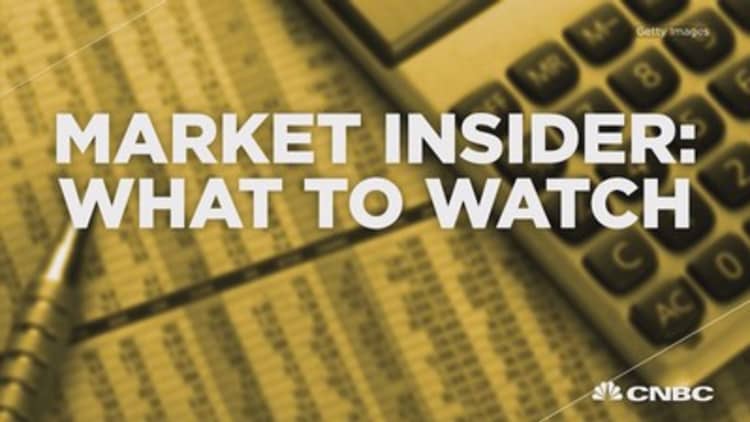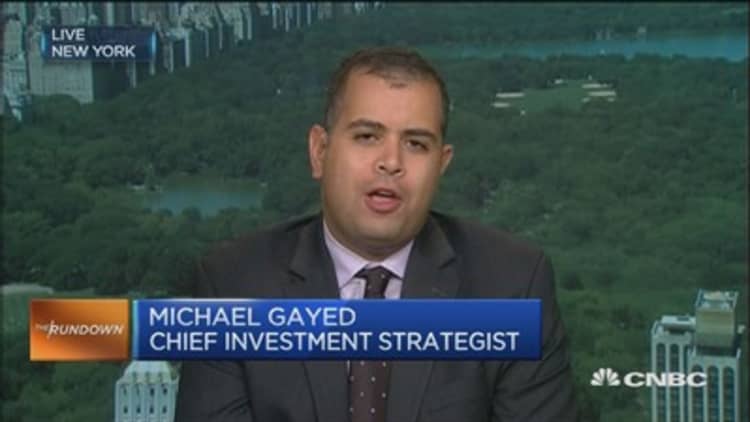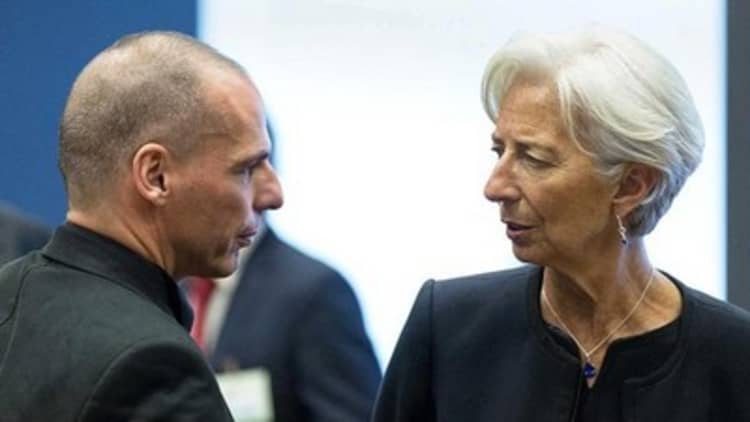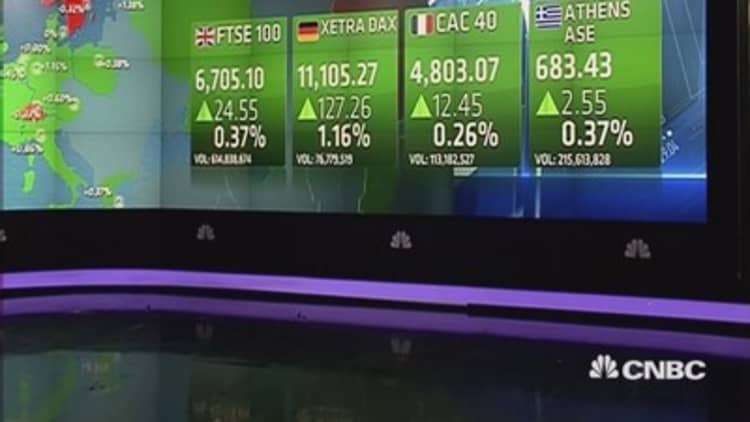



Markets may take the tensions around Greece's debt talks more seriously Friday, ahead of a weekend that could end with the country in an even more perilous state.
Traders on Thursday shrugged off the bombardment of headlines on Greece's dealings with euro zone officials, responding instead to the idea that the Fed delivered a dovish message to markets Wednesday. That sent stocks sharply higher, and the Nasdaq soared to a new high, surpassing its tech bubble intraday peak of 5,132 for the first time. The Russell 2000 also hit a new high.
Read MoreNasdaq recovers tech-bubble high
"I would argue that the Fed did strengthen the assessment of the economy in the second half of the year. There were some optimistic things in there. The bond market was strengthening before the Fed. This is the bond market's way of starting to say, 'we're taking Greece a little more seriously because we're getting closer to the deadline," said Jordan Kotick, head of cross asset strategy at RBC Dominion Securities.
"Our eyes are on the tape. ... There are a lot of things that could be said on weekends, as always. ... Everyone in the financial world is keeping an eye on Greece and that's a 24/7 job."
Kotick said the U.S. stock market has fared better than European markets since Greece resurfaced as a concern. He pointed out that mid caps are also setting new highs in addition to the Nasdaq and Russell. "That's a sign of a very strong fundamental backdrop for America, despite Greece. Greece will definitely trigger short-term wobbles, but America is still strong. We're bullish but defensive this summer," he said.
However, he does expect a stock market correction, and it's unclear whether it would be caused by Greece, the Fed or some other factor. "We don't have the triggers yet," he said.
Concerns about the solvency of Greek banks became more serious Thursday, after European Central Bank executive board member Benoit Coeure was reported to have told euro zone finance ministers that by Monday, Greek banks may have a hard time opening for business. Reuters reported that 2 billion euros ($2.3 billion) were pulled from Greek banks between Monday and Wednesday.
Read MorePurported ECB warning raises Greek tensions
Euro zone officials are expected to hold an emergency summit Monday. The hard deadline for Greece is June 30, when its bailout agreement ends and it is due to pay 1.5 billion euros to the IMF.
"The point is nobody really knows where the counterparty risk is in all of this. Right now, the market's basic assumption is there's no real counterparty risk in the system. It's all been washed out. It's all been hedged out. We'll have to see," said Boris Schlossberg, managing director, foreign exchange strategy at BK Asset Management.
The dollar was lower Thursday, and Schlossberg said there's been some flight to quality in the Swiss franc.
Read MoreFed on track to hike rates, despite caution on economy
"Right now, we're watching this constantly. It could be one of those things where we're all very complacent and come Monday, all hell breaks loose. The one thing that seems surprising to me is the fact that they really don't seem to want to make a deal," Schlossberg said.
Greek Finance Minister Yanis Varoufakis said the euro zone was dangerously close to an "accident" after European finance ministers failed to reach a deal with Greece in Luxembourg. Greek Prime Minister Alexis Tsipras, meanwhile meets with Russian President Vladimir Putin on Friday.
"There's no way to forecast what's coming out of Greece," said Kotick. "It's very much political. What we do want to keep an eye on is Greece has been contained for many months, but peripheral spreads started to widen a bit this week." Kotick said he is watching the periphery—Italy, Spain, Portugal—to make sure there is no contagion.
Read MoreIf Greece is in crisis, why's the euro so strong?
Greece's two-year yield hit the highest level of the year Thursday, reaching 30 percent. Earlier in the week, the Italian and Portugese 10-year yields were at their highest levels since late October, and the Spanish 10-year yield was at a 10-month high.
"That's what we want to keep an eye on. Aside from the economic and political backdrop, we want to see if the markets take this more seriously, and the answer this week is yes," said Kotick. "From an economic perspective, there's very little contagion from Greece in terms of its GDP, and how it affects the world but the markets are a three-dimensional spider web and if you shake one part, it affects it everywhere."
Friday is the quadruple expiration of futures and options, and trading could be volatile.
What to watch
Two Fed officials speak Friday.
San Francisco Fed President John Williams on policy at 11:40 a.m. ET, and he is the first Fed official to speak after the Wednesday Fed statement and Fed Chair Janet Yellen's post-meeting briefing.
Cleveland Fed President Loretta Mester speaks at 12:45 p.m. on community development and the Fed.


